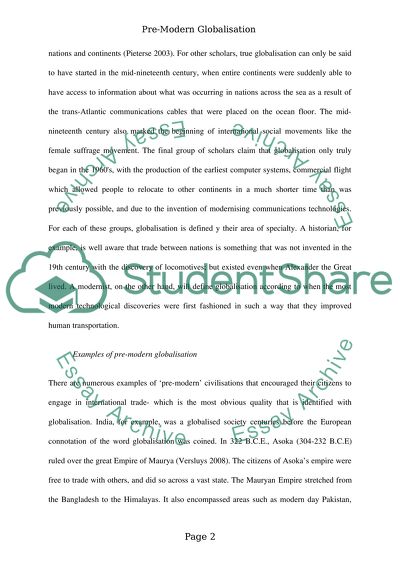Cite this document
(“Does pre-modern globalisation meet the criteria for globalisation Essay”, n.d.)
Does pre-modern globalisation meet the criteria for globalisation Essay. Retrieved from https://studentshare.org/sociology/1492751-does-pre-modern-globalisation-meet-the-criteria
Does pre-modern globalisation meet the criteria for globalisation Essay. Retrieved from https://studentshare.org/sociology/1492751-does-pre-modern-globalisation-meet-the-criteria
(Does Pre-Modern Globalisation Meet the Criteria for Globalisation Essay)
Does Pre-Modern Globalisation Meet the Criteria for Globalisation Essay. https://studentshare.org/sociology/1492751-does-pre-modern-globalisation-meet-the-criteria.
Does Pre-Modern Globalisation Meet the Criteria for Globalisation Essay. https://studentshare.org/sociology/1492751-does-pre-modern-globalisation-meet-the-criteria.
“Does Pre-Modern Globalisation Meet the Criteria for Globalisation Essay”, n.d. https://studentshare.org/sociology/1492751-does-pre-modern-globalisation-meet-the-criteria.


